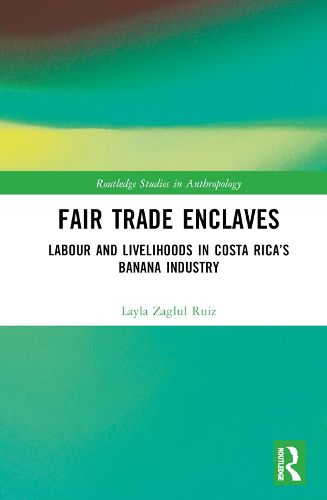Readings Newsletter
Become a Readings Member to make your shopping experience even easier.
Sign in or sign up for free!
You’re not far away from qualifying for FREE standard shipping within Australia
You’ve qualified for FREE standard shipping within Australia
The cart is loading…






Fair Trade Enclaves tells the story of exploitation and inequality in the production of Fair Trade bananas. It draws on immersive fieldwork in Costa Rica, which was the original testing ground for US-owned plantations and is today the world's third-largest exporter of bananas. The book offers an ethnographic study of Fair Trade's impact on the 'Dollar' banana system and considers how the growth in Fair Trade affects workers' livelihoods at the source of production. It documents the labour conditions and daily struggles of Costa Rican banana workers, featuring a comparative anthropological assessment of Fair Trade and conventional farms. The chapters provide a window onto Fair Trade's ability to effect change within one of the world's most exploitative and enduring commodity chains, exposing how Fair Trade currently fails to challenge the structural exploitation of banana production within the dollar system. The author reveals how, in some respects, workers at the conventional farm enjoy better conditions compared with those employed on the Fair Trade farm. The book is valuable reading for scholars of Anthropology, Development, and Latin American Studies.
$9.00 standard shipping within Australia
FREE standard shipping within Australia for orders over $100.00
Express & International shipping calculated at checkout
Fair Trade Enclaves tells the story of exploitation and inequality in the production of Fair Trade bananas. It draws on immersive fieldwork in Costa Rica, which was the original testing ground for US-owned plantations and is today the world's third-largest exporter of bananas. The book offers an ethnographic study of Fair Trade's impact on the 'Dollar' banana system and considers how the growth in Fair Trade affects workers' livelihoods at the source of production. It documents the labour conditions and daily struggles of Costa Rican banana workers, featuring a comparative anthropological assessment of Fair Trade and conventional farms. The chapters provide a window onto Fair Trade's ability to effect change within one of the world's most exploitative and enduring commodity chains, exposing how Fair Trade currently fails to challenge the structural exploitation of banana production within the dollar system. The author reveals how, in some respects, workers at the conventional farm enjoy better conditions compared with those employed on the Fair Trade farm. The book is valuable reading for scholars of Anthropology, Development, and Latin American Studies.